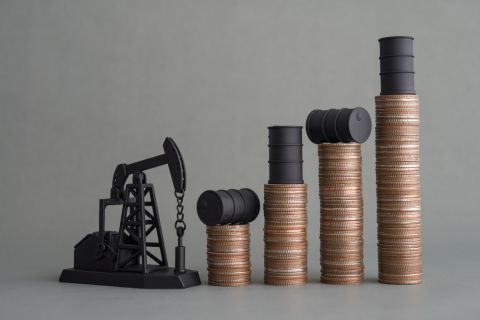A damaged oil pipeline component that disrupted output at several offshore U.S. Gulf of Mexico platforms was repaired late Aug. 12, a Louisiana official said, with producers moving to reactivate some of the halted production.
A failed flange connecting two onshore pipelines operated by Shell Plc in Louisiana leaked an estimated 2 bbl of oil. The oil, which spilled onto an area covered with gravel, has been removed, said Chett Chiasson, executive director of the Greater Lafourche Port Commission, and the flange had been repaired by the evening of Aug. 12, he said.
The spill halted operation of two pipelines that bring oil from several production facilities off the Louisiana coast, curtailing about 600,000 bbl/d of output from Shell, Chevron Corp. and Equinor, according to two people familiar with offshore operations.
On the evening of Aug. 12, the Amberjack and Mars pipelines that were stopped by the leak were back online and returning to normal service, after crews completed the repairs at the Fourchon booster station, Shell spokesperson Cindy Babski said.
Shell is also in the process of ramping up production at its three platforms that deliver Mars sour crude, an oil grade popular with refiners in the United States and Asia, Babski added.
Chevron, which had three production facilities shut by the leak, said it is ramping up production at its Jack/St. Malo, Tahiti and Big Foot platforms. Equinor's Titan platform was also disrupted.
Mars crude oil prices had initially strengthened to about a 50-cent discount to U.S. crude oil futures on news of the leak on Aug. 11, but eased to trade at a midpoint of a $1.40 discount on the following day as the outage appeared short-lived.
Crude oil futures prices slipped by about 2%, also on expectations that supply disruptions caused by pipeline outages would be short-lived.
International benchmark Brent crude futures fell $1.45, or 1.5%, to settle at $98.15 a barrel, while U.S. WTI crude closed down $2.25, or 2.4%, at $92.09 a barrel.
Recommended Reading
Texas LNG Export Plant Signs Additional Offtake Deal With EQT
2024-04-23 - Glenfarne Group LLC's proposed Texas LNG export plant in Brownsville has signed an additional tolling agreement with EQT Corp. to provide natural gas liquefaction services of an additional 1.5 mtpa over 20 years.
US Refiners to Face Tighter Heavy Spreads this Summer TPH
2024-04-22 - Tudor, Pickering, Holt and Co. (TPH) expects fairly tight heavy crude discounts in the U.S. this summer and beyond owing to lower imports of Canadian, Mexican and Venezuelan crudes.
What's Affecting Oil Prices This Week? (April 22, 2024)
2024-04-22 - Stratas Advisors predict that despite geopolitical tensions, the oil supply will not be disrupted, even with the U.S. House of Representatives inserting sanctions on Iran’s oil exports.
Association: Monthly Texas Upstream Jobs Show Most Growth in Decade
2024-04-22 - Since the COVID-19 pandemic, the oil and gas industry has added 39,500 upstream jobs in Texas, with take home pay averaging $124,000 in 2023.
Shipping Industry Urges UN to Protect Vessels After Iran Seizure
2024-04-19 - Merchant ships and seafarers are increasingly in peril at sea as attacks escalate in the Middle East.



